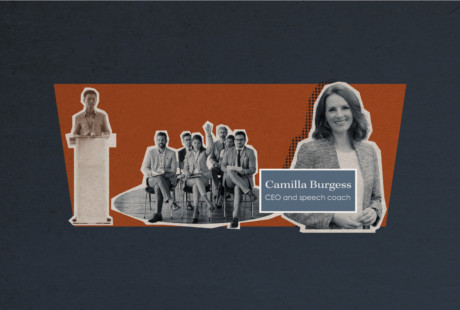Related:
Stop the Spiral: 7 Ways to Stay Sane During Job Transition
“I call myself a career strategist because I really don’t like the name coach or counsellor,” says Helen Dewar.1 Whatever the title, Dewar has been helping her clients, mostly from the management level up, get job-ready for about three decades. Career transitions can be difficult to navigate, but Dewar sees them as an opportunity to pursue something that provides fulfillment and new energy. She’s learned a few things over the years and shares some sage advice with job seekers.
Know Your Values: Find a Job That Will Bring You Joy
“Bottom line: you have to find something that’s going to make you happy,” says Dewar. This, of course, is a tough challenge, which Dewar acknowledges. “Finding this type of job is probably the hardest job out there.”
Dewar believes that an important component of job satisfaction is finding an employer that aligns with your values. The first step toward this is to define your priorities, which is often easier said than done. To help her clients achieve this, Dewar utilizes various forms of testing, including Myers-Briggs testing, skills and abilities testing, Strength testing, and values testing.
“This helps people put into words what their values truly are,” she says. “This can then be used as a roadmap to determine which types of jobs you should be approaching.”
When Dewar worked with The Minerva Foundation to design a program that helped professional women re-enter the workforce she dedicated the first half of the agenda to self-exploration – knowing who you are and what you can do.
“Happiness is the baseline,” she says. “You don’t want to just start throwing your resume out there everywhere and anywhere.You want to target companies of interest”
How can job seekers understand a company’s values? Just ask!
“I advise my clients to ask interviewers what the values of the organization are,” she explains. “If they can’t answer the question, leave!”
Know Your Worth: Understand Your Place in the Market
“Some people think they should be a CEO and sometimes I have to take them down a peg or two,” says Dewar, admitting that this is the exception rather than the rule.
She believes that setting benchmarks is important and begins the process by asking her clients what their bottom line expectations are. Her extensive knowledge of the jobs market, coupled with some quick research allows her to determine whether her clients’ expectations are realistic.
“People will tell you that I’m direct, with a kid glove,” says Dewar of her approach.
She says that by the time they come to her, many of her clients are discouraged and may be undervaluing themselves, which she aims to resolve. Dewar says that the process of updating your resume can itself be a confidence booster, as it reminds you of your achievements and abilities.
“Most people don’t do well bragging about themselves, so a third party helps,” says Dewar. “I see it from a different angle.”
Know Your Audience: Approach Job Interviews with a Plan
While it’s obvious that candidates should research the company before entering a job interview, Dewar advises taking it a step further and planning for the specific audience.
“You may be interviewed by an HR person the first time around,” says Dewar, explaining that these interviews are about clearing your resume and determining whether you’re able to defend what’s on it.
“The second interview might be with the manager you’re reporting to, which changes the dynamic, so it’s best to plan accordingly,” advises Dewar. “The questions here will often be more behavioral or situational, leading to robust discussion.”

Know How to Read a Job Description: Read Between the Lines and Go For It!
Reading a job description can be an exercise in interpretation, so Dewar advises her clients to do so carefully.
“I ask them to take a highlighter and highlight words they’re attracted to,” she says. This simple exercise helps filter through the voluminous verbiage that job seekers are subject to. Dewar says that many job descriptions are poorly written or unrealistic.
“Sometimes I find myself thinking ‘they sure want a lot for $50,000,” Dewar says with a chuckle.
What should job seekers do when they find themselves interested in a job description but aren’t sure they exactly match each and every listed criteria?
“Just go for it,” suggests Dewar. “Men tend to think they can do it all, but women are more likely to believe that one or two discrepancies mean they’re unqualified. If you feel confident in your abilities, don’t be deterred.”
Self Care
While job seeking is a notoriously arduous and draining task, Dewar asks her clients to keep their chin up.
“Designate a certain number of hours per day to the job search, no more than three,” she advises. “Remember to engage in self care. Do your running, your walking, cooking, or whatever you want to do, but don’t stare at a computer all day long.”
Cited Sources
1 Direct Contact with Helen Dewar




